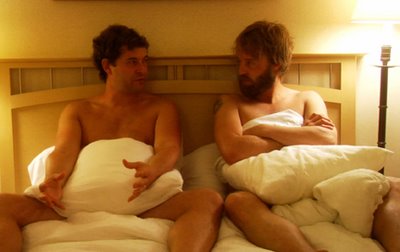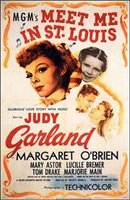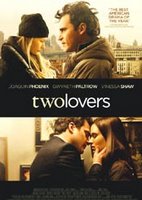Dishing on the latest blend of alternative flicks being tossed around in limited releaseBy R. Kurt Osenlund,
The Good Life film critic
HUMPDAYDir. Lynn Shelton
Magnolia Pictures
94 min. R
At the “Humpday” screening I attended, writer/director Lynn Shelton (“My Effortless Brilliance”) appeared for a post-film Q and A. One audience member asked her if her latest feature – a made-on-a-dime indie comedy about a pair of straight buddies who decide to have sex on camera – was a low-budget, artistic response to the recent influx of Hollywood bromances. Shelton replied that the timing was purely coincidental. She wasn't just trying to preserve her street cred. “Humpday” is not a film that's out to follow trends, but one that attempts to carve out something fresh and honest. It mostly succeeds.
The beauty of the movie is that it never condescends to the lowbrow level of something like “I Now Pronounce You Chuck and Larry.” In fact, I think I only heard the word “gay” uttered once in its entire duration. A loose behavioral study, it's more interested in humanity than humor, and yet, it certainly isn't short on laughs. It pins its focus on the longtime friendship of Ben (Mark Duplass of “The Puffy Chair”) and Andrew (Joshua Leonard of “The Blair Witch Project”), two guy's guys who headed in drastically different directions after college. Ben's now married to Anna (unknown actress Alycia Delmore), and leading a seemingly peachy domestic life in Seattle. Andrew's a drifting artist who's been searching for his soul from Chiapas to Cambodia. When Andrew comes knocking on Ben's door in the wee hours of the night, a hug-filled reunion leads to substance-filled hippie party, which in turn leads to the spontaneous idea of submitting a film to a local, amateur porn festival – a film that would feature Ben and Andrew doing the nasty...with each other.
Shelton – who also appears in her movie as a swinging bohemian – said she shot the film in just 10 days and wrote the script as a rough outline, allowing the actors to fill in the dialogue. Though it feels inarguably organic, the result is a mixed bag of authentic and inauthentic scenes: some seem fly-on-the-wall real, while others seem staged. Specifically, the exchanges between Ben and Anna, while never prototypical, ring a bit false because the actors – especially Delmore – fail to fully sell the relationship. And many of the point-exhausting conversations between Ben and Andrew reach a level of tedium, causing you to question Shelton's editorial eye (i.e., know when to say “cut”). Conversely, though, there are some profound and wonderfully truthful moments of revelation that expose the strengths and weaknesses of each character. It is in these moments that we're given the plausible motives we need to accept these people's actions as sincere.
Leonard, an actor who's all but mastered the art of improvisational realism, is the standout – there's never a second we don't believe his Andrew is flesh and blood. Duplass – who, with a big handful of small films, has established a niche for himself in the indie market – nearly matches his co-star, but at times comes off as though he's acting instead of reacting, like he's got the low-budget leading man role rehearsed. The high point for both leads and for Shelton is the big finish – the final scene in which we discover whether or not the two bros will follow through with their radical scheme. The actors and the director hold the audience in a hilarious, anticipatory state of “will they or won't they” tension, and they end the film on a warm note that, in many ways, encapsulates the entire project. Despite its flaws, this is a surprisingly commendable and respectable movie, one that finds an unusual and entertaining way to evaluate modern male relationships. The fact that it was made by a woman is not only interesting, but kind of amazing.
3.5 stars (out of 5)--
THE STONING OF SOROYA M.
Dir. Cyrus Nowrasteh
Roadside Attractions
116 min. R
It's ironic that one of the stars of “The Stoning of Soroya M.” is Jim Caviezel, the actor who so famously took great pains to portray Jesus in 2004's “The Passion of the Christ.” Why? Because this deeply devastating, fact-based drama features the most vividly brutal scenes of primitive, ritualistic capital punishment since Mel Gibson's controversial epic. Caviezel plays Freidoune Sahebjam, the French-Iranian journalist whose 1994 non-fiction book inspired the film. Set in 1986 in the small, sun-soaked Iranian village of Kupayeh, “Stoning” opens with Sahebjam's car breaking down. The writer pays the town's mechanic to fix his vehicle and, in the interim, he meets Zahra (an excellent-as-usual Shoreh Aghdashloo), a clearly distraught local woman with an incredible story to tell. Concealed within the walls of her hilltop villa, Zahra asks Sahebjam to tape-record her first-hand account of a horrific event that took place just a day before: the unbelievable and unjust public stoning of her niece, Soroya (Mozhan Marnò of “Traitor”). The movie then proceeds in flashback, and leads to one of the most shocking climaxes of this or any year.
That “Stoning” achieves such a primal suspense is a testament to director Cyrus Nowrasteh's craft. After all, all one needs is the title to know where things are headed. But the film is mounted with great skill and efficiency, drawing us into Soroya's life while breathlessly advancing the plot. We learn that Soroya, a young mother of four, was a pitiful victim of domestic abuse – the wife of a truly evil man who wanted her out of the picture so he could pursue a relationship with his 14-year-old (!) mistress. As the story goes, the husband, Ali (an appropriately frightening Navid Negahban), found a way to accuse Soroya of adultery, an offense that, in that culture, was – and, apparently, still is – punishable by death. Sparking rumors that quickly fanned out like a brush fire, Ali managed to convince the mayor, the townspeople, even Soroya's sons and father (!!), that his wife was guilty of a crime she didn't commit. Only Zahra – who's shown to have considerable clout given her age and history with the town's mafia-like leaders – stood by the accused; however, it wasn't enough to sway opinions, since Zahra, like Soroya, is still just a woman.
Nowrasteh deserves praise for creating a film with such a strong feminine perspective. Watching “Stoning,” we not only sympathize with Soroya, but with every woman trapped within the tyrannical, male-dominated customs of Islam. “The voices of women do not matter here,” Zahra tells Sahebjam. “I want you to take my voice with you.” Nowrasteh gives those restrictions an infuriating, even asphyxiating palpability. He backs you into the hopeless corner that countless Middle Eastern women know all too well. He depicts young boys being trained from the get-go to harbor contempt for women (in one of the many horrors of the film's final act, it is the boys who happily gather the stones that will bring about Soroya's end). The aching desperation of Marnò's performance makes us feel for her character. The broad-minded sensibilities of Nowrasteh's approach make us feel for an entire demographic.
If there's fault to be found, it's with Nowrasteh's overly emphatic finishing touches. He gets a little heavy with the visual metaphors, particularly in how he presents Soroya as a fallen angel of fairy princess-type innocence (we could have gathered that ourselves without the birds, flowery fields and gleaming white burial gown). And the tacked-on, post-execution ending contains melodrama that's way too Hollywood for something so painfully real. Still, by the time these elements register as flaws, the gut-wrenching impact of the film has already sent your jaw to the floor. Nothing can prepare you for what Nowrasteh is willing to show. I suppose there's a question of taste to be considered for just how much carnage is put on display, but “Stoning” means to astonish you and does. Though it becomes increasingly difficult to watch, it is a movie you will never forget.
4 stars (out of 5)

 RSS Feeds
RSS Feeds












